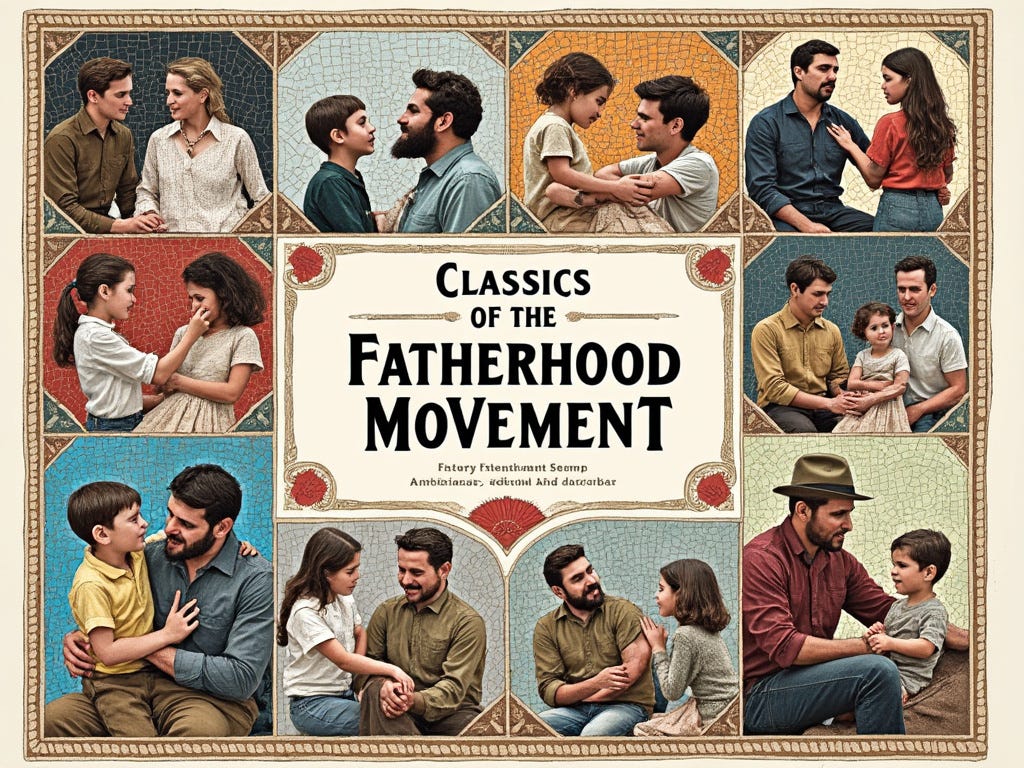Classics of the Fatherhood Movement. Not Guilty: The Case in Defense of Men by David Thomas
To mark the 50th anniversary of the Australian Family Law Act in 2025 A Sense of Place Magazine is running this series Classics of the Fatherhood Movement.
Also, keep an eye out for the upcoming book from A Sense of Place Publishing, Failure: Family Law Reform Australia by veteran journalist John Stapleton.
In "Not Guilty: The Case in Defense of Men," David Thomas challenges prevailing narratives around gender roles, particularly the notion that men are inherently oppressive or responsible for societal ills. Thomas argues that many contemporary feminist critiques have painted an overly negative and one-sided portrait of men, leading to a culture that often views masculinity as problematic or toxic.
1. Reframing Masculinity: Thomas begins by redefining masculinity, suggesting that many of its attributes—courage, stoicism, risk-taking, and physical strength—have historically been beneficial to society. He argues these traits are often overlooked or demonized in current discourse, where traditional masculinity is frequently equated with aggression or misogyny.
2. Historical Revisionism: He delves into history to show how men have contributed positively to civilization, not just through warfare and conquest but through innovation, science, and art. Thomas asserts that while acknowledging male historical misdeeds is essential, focusing solely on these aspects leads to a distorted view of men's overall impact on humanity.
3. Men as Victims: The book addresses how men are victims of societal issues, including higher rates of workplace fatalities, shorter life expectancy, and less support for mental health issues. Thomas discusses the lack of male-specific services for domestic violence or rape, arguing that societal structures often fail to recognize men as potential victims.
4. Education and Media Influence: Thomas critiques the education system and media for promoting narratives that either marginalize boys or present negative stereotypes of men. He discusses how these influences can lead to lower academic performance among boys and contribute to a crisis of male identity.
5. Feminism and its Discontents: While supportive of equality, Thomas critiques certain strands of feminism that, in his view, contribute to anti-male sentiment. He suggests that movements advocating for women's rights could inadvertently foster an environment where men are seen as the enemy, rather than as partners in achieving gender equality.
6. The Future of Gender Relations: The book concludes with Thomas advocating for a new understanding of gender relations, where both men and women recognize each other's contributions and challenges. He proposes that true equality includes acknowledging and addressing the specific issues faced by men, not just women.
Positive Reviews:
Review 1: "David Thomas's 'Not Guilty' is a brave and necessary counter-narrative in a world where men are often the default villains in discussions of gender. His thorough research and balanced perspective provide a much-needed voice in the conversation about masculinity and its place in modern society." - The Literary Review
Review 2: "'Not Guilty' is an insightful exploration that challenges readers to reconsider entrenched views on gender. Thomas writes with clarity and passion, offering a perspective that, while controversial, is undeniably thought-provoking." - Men's Health Magazine.
Quotes from David Thomas
"We must recognize that just as women have fought for their liberation, men too are seeking a liberation from the confines of outdated stereotypes. Men are not inherently flawed; they are human, with their own set of vulnerabilities and strengths."
"The narrative that men are solely oppressors and women are solely victims is not just simplistic; it's harmful. It prevents us from seeing each other as equals, as individuals with our own battles and victories."
David Thomas's "Not Guilty" isn't merely a defensive tract but a call for a more nuanced understanding of gender dynamics. By challenging the reader to look beyond the headlines and delve into the complexities of male identity and experience, Thomas invites a broader conversation about what equality truly means in the 21st century. His work has sparked debate, with critics both applauding its courage in addressing often overlooked issues and questioning its implications on the broader feminist movement.
However, Thomas's aim remains clear: to foster a dialogue where men are neither demonized nor idealized, but seen as integral parts of society with their own set of challenges and contributions.
This summary encapsulates the core arguments and themes of Thomas's book, providing a platform for understanding his perspective on modern masculinity, gender equality, and the need for a more inclusive dialogue about gender issues.
CLASSICS OF THE FATHERHOOD MOVEMENT
CLICK ON THE IMAGE BELOW TO SEE THE SERIES SO FAR
OUT SOON
MARKING THE 50TH ANNIVERSARY OF THE AUSTRALIAN FAMILY LAW ACT










